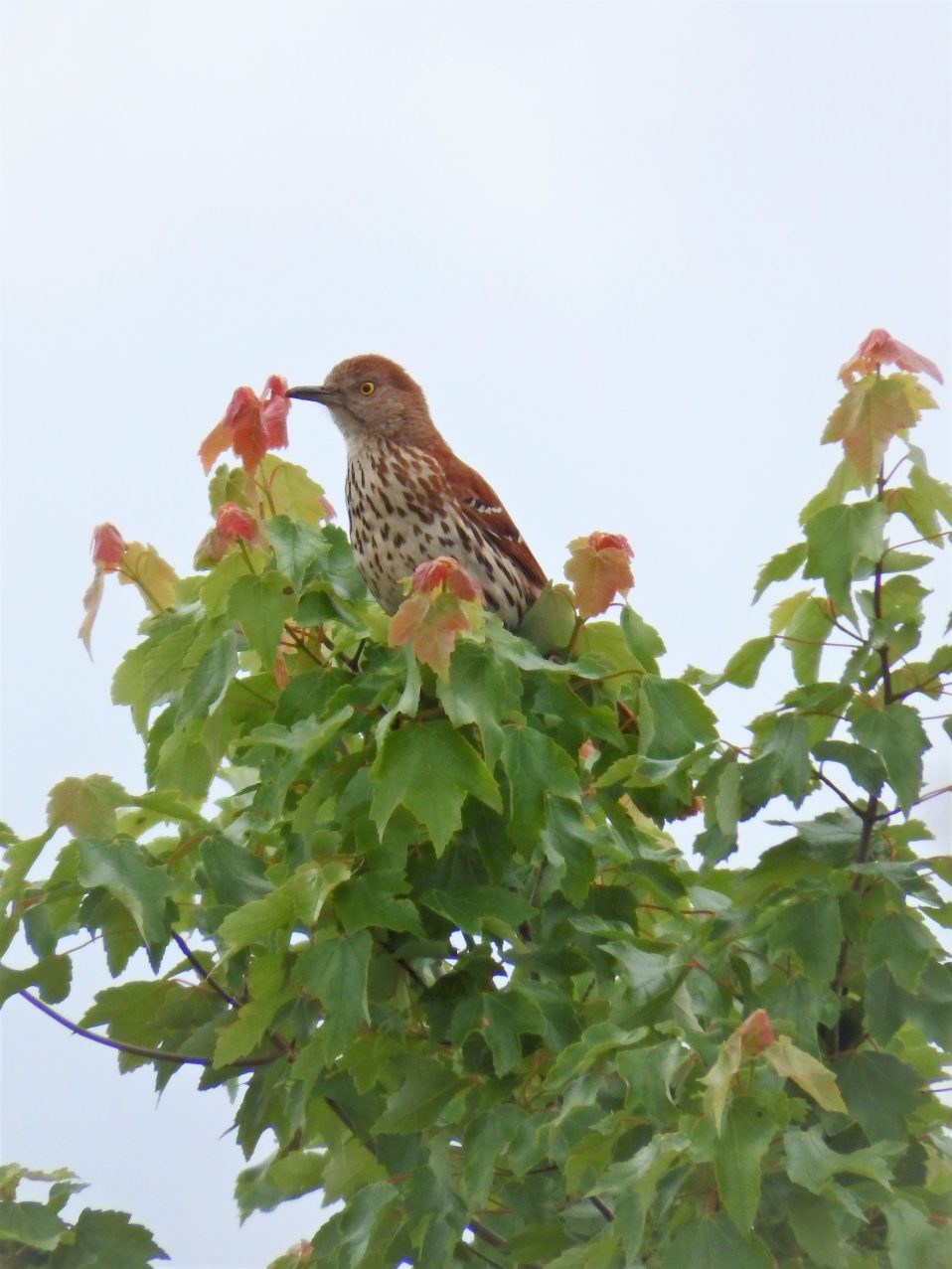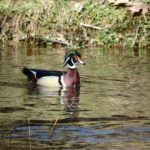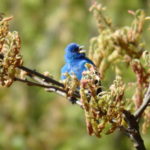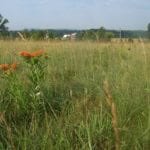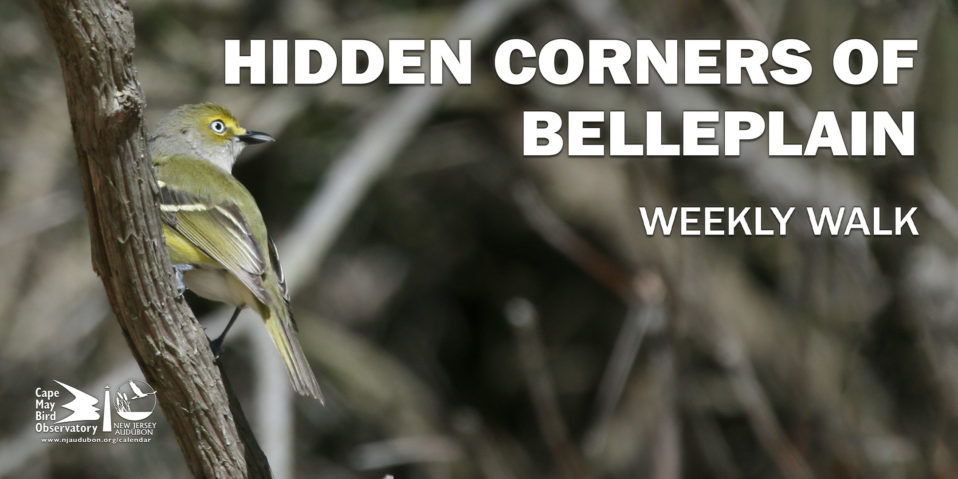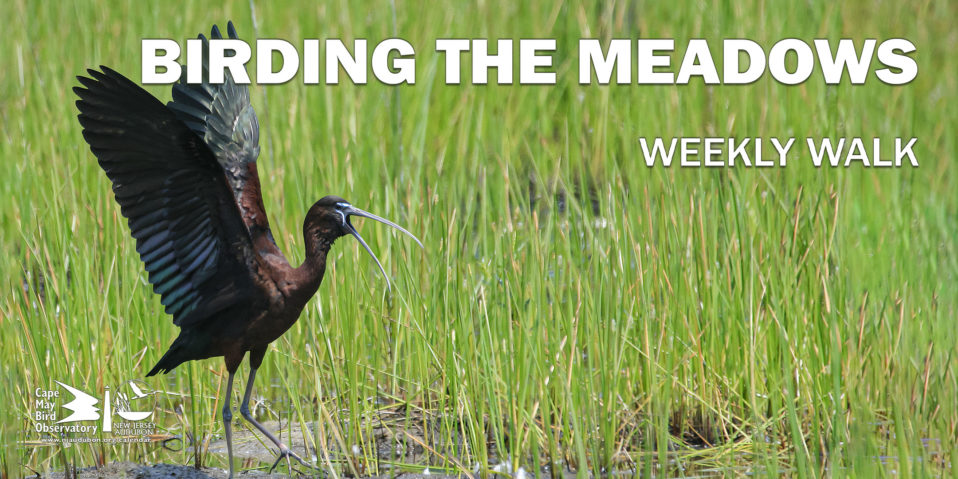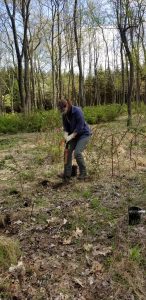
NJ Audubon Stewardship Staff Planting Native Trees in the Musconetcong River Watershed. Photo by John Parke
Although the world is a lot different now, what has not changed is the need to conserve and protect our natural resources for a healthier planet. Donned in facemasks and gloves, New Jersey Audubon Stewardship staff assisted two different landowners in the Musconetcong Watershed with reforestation projects. Both projects are part of the Delaware River Watershed Initiative (DRWI). The first project was a large scale 6,500 native tree planting as part of a Forest Stewardship Plan developed by Forestree Consultants of Stockton, NJ. The second project was a 2-acre native tree reforestation planting project that is part of a US Fish and Wildlife Service Partners for Fish and Wildlife Project.
Previously, both project areas were overwhelmed with non-native invasive woody vegetation such as Autumn Olive, Multiflora rose, Japanese Barberry and Bradford pear. After several days of removing these invasives from the areas, the new trees consisting of swamp white oaks, eastern red cedar, scarlet oaks, persimmon, red bud, hackberry and others were planted to create young forest communities. This young forest habitat type is critical to the survival of numerous wildlife species in NJ as it provides suitable cover, forage and areas to raise young. Additionally, recent research has shown that young forests use carbon best and absorb it most efficiently. According to a new study in the Proceedings of the National Academy of Sciences seems on the face of it to settle an old puzzle with an unsurprising answer. New and young forests make the most efficient and effective carbon sinks!
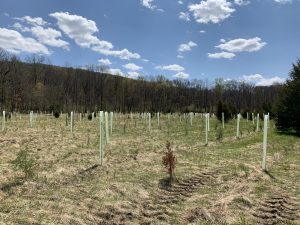
Project Area 1 in the Musconetcong River Watershed will provide young forest habitat for many species of wildlife, as well as, help improve water quality and carbon storage in the region. Photo by Liz Matseur
NJ Audubon is looking to engage more landowners for enrollment into the various federal conservation cost share programs for forestry and agricultural Best Management Practices. For more information please contact NJA Stewardship Project Director – North, John Parke at [email protected] or NJA Stewardship Project Director – South, Kristen Meistrell @ [email protected].
To support NJA Stewardship Department’s work for overall habitat restoration, species recovery and natural resource protection throughout NJ, including work associated with young forest projects, you can donate to The Fightn’ Femelschlagers participating in the 2020 World Series of Birding at https://worldseriesofbirding.org/teampage.asp?fundid=1439#.XqxKg6hKjIV




